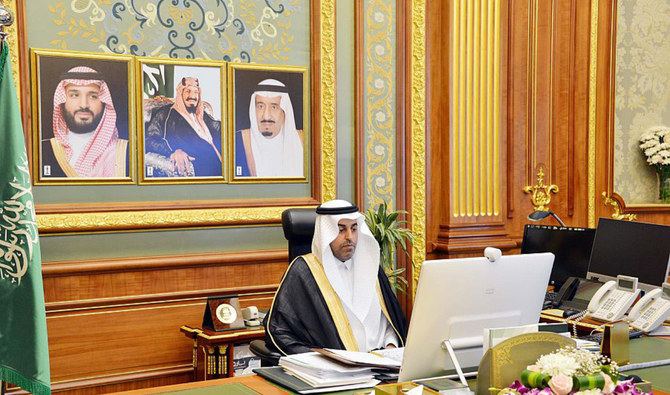MAKKAH: A draft decision of the Shoura Council today related to the reconciliation system in Qisas halted the exploitation of blood profiteering, setting a maximum ceiling for blood money that does not exceed SR5 million ($1.33 million) in the event where blood heirs desire compensation.
After being studied by the Islamic and Judicial Affairs Committee, which submitted a report containing its opinions and recommendation, the Shoura Council approved on Tuesday a proposal for a draft system of reconciliation in Qisas submitted by several council members, based on Article 23 of the council’s system.
It came during the work of the 28th ordinary session of the second year’s eighth term, which was held virtually on March 1, headed by the Council Deputy Chairman Dr. Mishaal bin Fahm Al-Salami.
The council made the decision to approve the draft system proposal submitted by council members. It included the committee’s view on the council members’ observations and opinions during the proposal’s discussion in a previous session.
In accordance with the report of the Islamic and Judicial Affairs Committee on 18 articles, the draft system regulates the process of collecting compensation sums for Qisas, and estimating and organizing compensations for Qisas in the case of premeditated crime.
The law contains the mechanism for paying the compensation sum and the parties concerned with regulating it, determining the procedures resulting from the compensation and the relations between the various relevant parties. It also raises the level of awareness among members of society regarding the provisions of collecting the compensation sums for Qisas and the importance of forgiveness.
The articles of the proposed draft system apply to everyone who has been subjected to a legal Qisas judgment, where the victims or their families agreed to pardon with or without compensation.
The proposed draft also regulates in its articles the conditions related to promoting for the purpose of collecting sums. One of the draft’s articles prohibits offenders or their families from publicizing by any means, or making gatherings for the purpose of collecting donations as compensations. The proposed draft stipulates in another article that neither the offenders or the offenders’ families are entitled to contact the victims, or the victims’ families, or assign anyone to contact them, except after the approval of the Reconciliation Committee in the region’s Emirate.
Shoura Council member Dr. Sultana Al-Badawi told Arab News that great efforts were made to make the reconciliation project successful. She said that it was presented by Dr. Sultan Al-Fareh, Dr. Sultana Al-Badawi, Dr. Suleiman Al-Fifi, Dr. Mastoura Al-Shammari, Dr. Faisal Al-Fadil and former council member Dr. Abdullah Al-Balawi.
She added that this project was based on Article 23 of the council’s system that perceived a social problem represented by the exaggerated demand for blood money in compensation and its transformation into blood-profiteering events.
This phenomenon occupied the community for many years, necessitating the need to organize the demand for blood money and fill any legislative void that contributes to exacerbating this phenomenon.
She said that the system took into account moral and physical abuse to which the usual penalty is Qisas. It contains penalties indicating that this regulation is applied only if the blood heirs agree to pardon with or without financial compensation.
Al-Badawi added: “The system made it clear that whoever wishes to pardon without financial compensations, will be rewarded with King Abdulaziz Medal of the first degree and honored by the region’s governor. As for those who pardon and ask for a financial compensation, they must abide by what is stated in the reconciliation report issued by a specialized committee and signed by blood heirs in the Emirate of the region.
“The compensation amount has been set at no more than SR5 million and the committee can take into account some of the additional conditions set by the blood heirs in the reconciliation,” she said.
“The system also stressed the importance of depositing the money in a designated bank account that is opened after the approval of the Interior Ministry and the Central Bank, where the compensation amount is considered part of the victim’s estate and distributed among the heirs in accordance with the inheritance provisions.
“The system took an important issue into account. In the event that offenders have a precedent and what they have done is recidivism for the crime of deliberate killing or assaulting, they will be sentenced to death or imprisonment for a period that does not exceed 20 years. This system took into account the importance of educating the community about the need to preserve lives and to bear in mind that any violation of this system’s articles subjects its perpetrators to penalties.”















